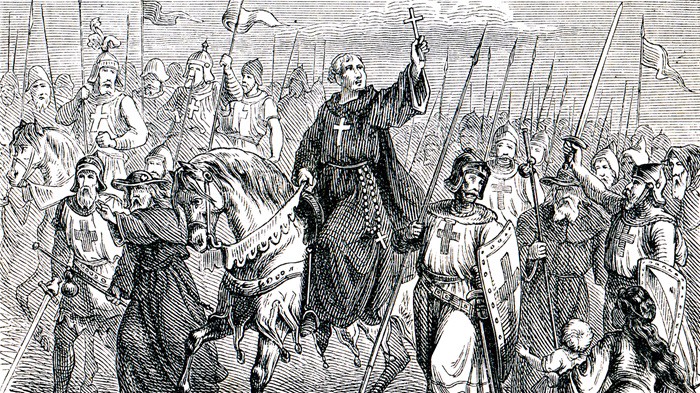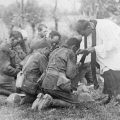
Following the policies of the nineteenth century, during the first part of the twentieth century the United States was firmly convinced that American Indians could assimilate only if they became Christians. To aid in the “civilization” (i.e. Christianization) of the Indians, Congress had formally outlawed Indian religions in the nineteenth century. On the reservations, Indians could be jailed without a trial for practicing or promoting any traditional Indian religious practice. In addition to suppressing traditional ceremonies such as the Sun Dance, one of the concerns at this time focused on suppressing and criminalizing the so-called “Peyote Cult” (the Native American Church). Briefly described below are some of the events dealing with American Indian religions in 1916.
Peyote
Opposition to the Native American Church has generally been based on: (1) it is an American Indian religion, and (2) the Church’s use of peyote as a sacrament. Peyote, often confused with mescaline, has been labeled addictive.
Representative Harry L. Gandy of South Dakota and Senator W. W. Thompson of Kansas introduced bills in Congress to prohibit traffic in peyote, including its sale to Indians. Support for the bill was provided by the National Indian Association, the Society of American Indians, the National Indian Student Conference, the Lake Mohonk Conference, the Indian Rights Association, and the YMCA. The presentation of anti-peyote materials was coordinated by the Bureau of Indian Affairs. Omaha Indians journeyed from Oklahoma to Washington to testify against the bills. The bills failed to pass. Anthropologist Omer C. Stewart, in his entry “Peyote and the Law” in the Handbook of American Indian Religious Freedom, writes:
“This was the beginning of a futile forty-seven-year effort to outlaw peyote federally. Twelve different bills were introduced into Congress to prohibit the use of peyote in the United States from the 1916 Gandy bill to the 1963 Fascell bill. No federal bill ever resulted.”
Harry Black Bear, an Oglala Sioux, was arrested in South Dakota for giving peyote buttons to other Indians. In a trial in Deadwood, South Dakota, a jury found him guilty, but the judge ruled that the prohibition under which he had been charged applied to alcoholic beverages and not to peyote. According to the judge:
“I am clearly of the opinion that this prosecution is not within the purview of this statute….[Peyote] is neither an intoxicating liquor nor a drug.”
In Oklahoma, the Indian agent for the Southern Ponca reported that half of the tribe’s 630 members were involved with the Peyote religion.
Sun Dance
In Idaho, the Shoshone and Bannock once again attempted to hold a Sun Dance off the reservation. Indian police from the Fort Hall Reservation tore down the Sun Dance structure, cut up the poles, and confined seven of the ceremonial leaders to jail for ten days.
In Montana, writer Frank Bird Linderman wrote to the Commissioner of Indian Affairs Cato Sells asking that the orders requiring that Indian men cut their hair and prohibiting the Sun Dance be rescinded for the Chippewa and Cree on the Rocky Boy Reservation. Sells replied that there was no order to forcibly cut the men’s hair, but simply a strong suggestion that they do so. With regard to the Sun Dance, Sells strongly supported the ban on this ceremony citing a long-standing policy to discourage harmful Indian practices. The Indians, however, simply conducted the Sun Dance without official permission. In Reimagining Indians: Native Americans Through Ango Eyes, 1880-1940, historian Sherry Smith reports:
“Official permission mattered little to them and apparently nobody on the reservation tried to stop it.”
In Oklahoma, the Indian agent banned the Kiowa Ghost Dance because of its opposition to Christianity and allotment. However, several Ghost Dances were held on scattered allotments. The agent obtained a list of the names of 79 participants so that he could withhold their per capita payments.




Leave a Reply